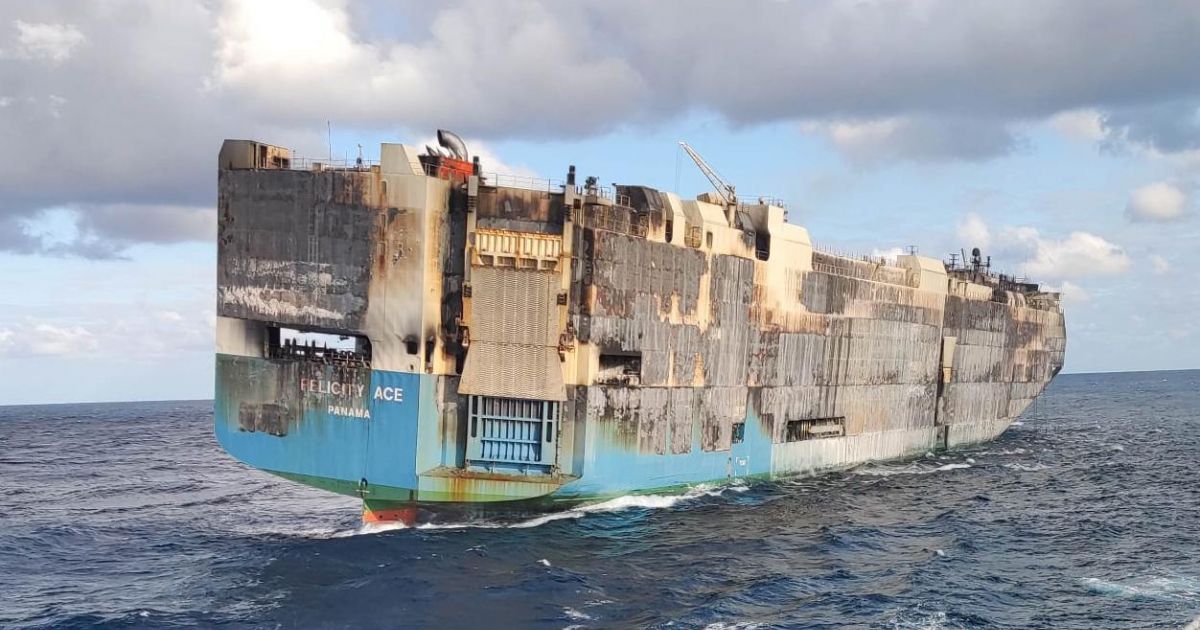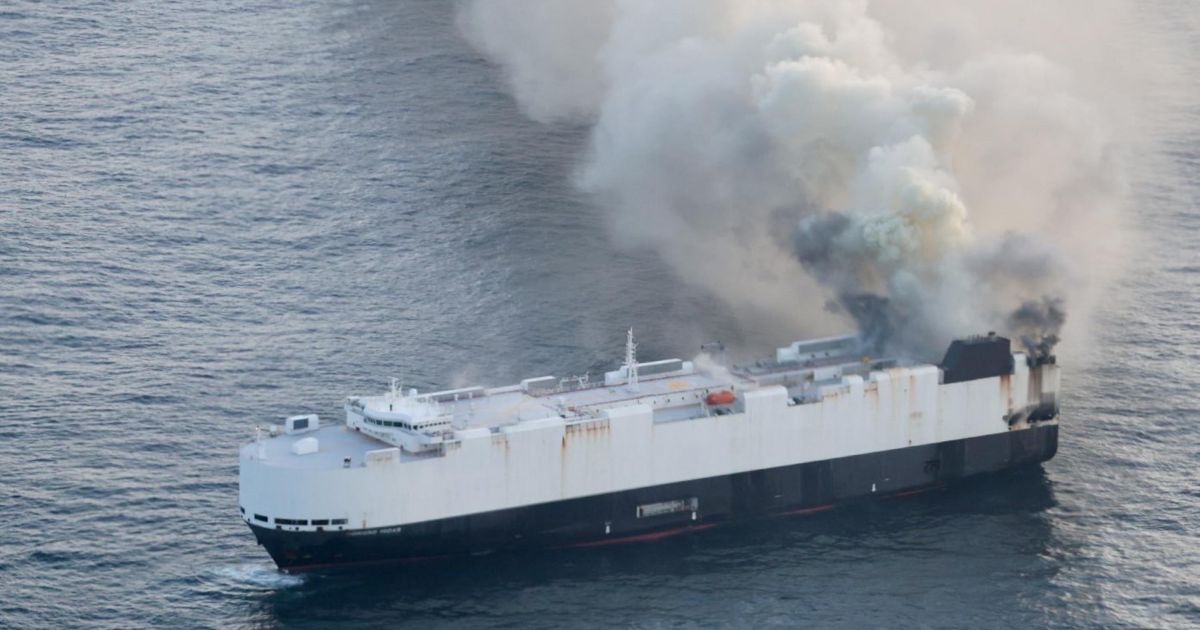An international shipping company has banned electric vehicles (EVs) and plug-in hybrid electric vehicles (PHEVs) from its vessels after an onboard fire caused a rival company’s ship to sink in the North Pacific Ocean earlier this year.
Matson, a 104-year-old transport and services company based in the US state of Hawaii, confirmed it will no longer ship EVs or PHEVs across the Pacific Ocean – or any other sea.
“Due to increasing concern for the safety of transporting vehicles powered by large lithium-ion batteries, Matson is suspending acceptance of used or new electric vehicles (EVs) and plug-in hybrid vehicles for transport aboard its vessels,” said a letter to customers from the company, which is listed on the New York Stock Exchange (NYSE).
“Effective immediately, we have ceased accepting new bookings for these shipments to/from all trades.”
CarExpert can save you thousands on a new car. Click here to get a great deal.
It’s a blow not only for automakers but prospective buyers, with The Maritime Executive reporting figures from the Hawaiian Electric Vehicle Association that estimate around 37,000 of the 1.2 million-plus cars in Hawaii are EVs.
Fires from vehicles with lithium batteries have unique characteristics, including rapidly reaching temperatures of up to 1000 degrees Celsius from ‘thermal runway’, as well as toxic-gas release, making them difficult to extinguish.
In addition to vehicles themselves, fires have also quickly engulfed nearby cars and caused significant damage to buildings, as well as shipping vessels.
According to The Maritime Executive, Matson had worked to overcome the difficulties, including forming the Electric Vehicle Safe Carriage Group to resolve the issue.
It worked on transport and stowage procedures for shipping EVs, and installing thermal imaging cameras to monitor temperature spikes indicating a fire.
However, Matson said the ability to monitor and respond to EV and PHEV fires was hampered by their placement in shipping containers.
“Matson continues to support industry efforts to develop comprehensive standards and procedures to address fire risk posed by lithium-ion batteries at sea and plans to resume acceptance of them when appropriate safety solutions that meet our requirements can be implemented,” it said in the customer letter.
In June, the 46,800-ton Morning Midas, carrying 3048 vehicles including 70 EVs and 681 hybrids, caught fire on route from China to Mexico.
The blaze caused the ship to be evacuated and then abandoned around 483km off the coast of Alaska, before recovery attempts were made.
The makes and models of the vehicles on board were not disclosed.
It was the third fire in a vessel with EVs on board, after the Fremantle Highway sank off the Portuguese coast in 2023 and the Felicity Ace was lost the previous year.
MORE: Charging EV goes up in flames, but firies say it wasn’t the car’s fault




